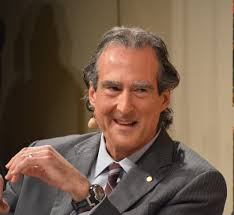American Nobel Laureate Knew About Chinese Scientist Gene-Editing Babies, But Did Not Report Him, Emails Show
By Candice Choi and Marilynn Marchione,
Time
| 01. 28. 2019
Long before the claim of the world’s first gene-edited babies became public, Chinese researcher He Jiankui shared the news with a U.S. Nobel laureate who objected to the experiment yet remained an adviser to He’s biotech company.
The revelation that another prominent scientist knew of the work, which was widely condemned when it was revealed, comes as scientists debate whether and how to alert troubling research, and the need for clearer guidelines.
Emails obtained by The Associated Press under a public records request show that Nobel Prize winner Craig Mello of the University of Massachusetts learned about the pregnancy last April from He in a message titled “Success!”
“I’m glad for you, but I’d rather not be kept in the loop on this,” Mello replied. “You are risking the health of the child you are editing … I just don’t see why you are doing this. I wish your patient the best of luck for a healthy pregnancy.”
Mello stayed on as a scientific adviser for He’s Direct Genomics company for eight more months, until December, just after news of...
Related Articles
By Scott Solomon, The MIT Press Reader | 02.12.2026
Chris Mason is a man in a hurry.
“Sometimes walking from the subway to the lab takes too long, so I’ll start running,” he told me over breakfast at a bistro near his home in Brooklyn on a crisp...
By Diaa Hadid and Shweta Desai, NPR | 01.29.2026
MUMBRA, India — The afternoon sun shines on the woman in a commuter-town café, highlighting her almond-shaped eyes and pale skin, a look often sought after by couples who need an egg to have a baby.
"I have good eggs,"...
By George Janes, BioNews | 01.12.2026
A heart attack patient has become the first person to be treated in a clinical trial of an experimental gene therapy, which aims to strengthen blood vessels after coronary bypass surgery.
Coronary artery bypass surgery is performed to treat...
By Staff, ScienceDaily | 01.05.2026
Scientists at UNSW Sydney have developed a new form of CRISPR technology that could make gene therapy safer while also resolving a decades-long debate about how genes are switched off. The research shows that small chemical markers attached to DNA
...




